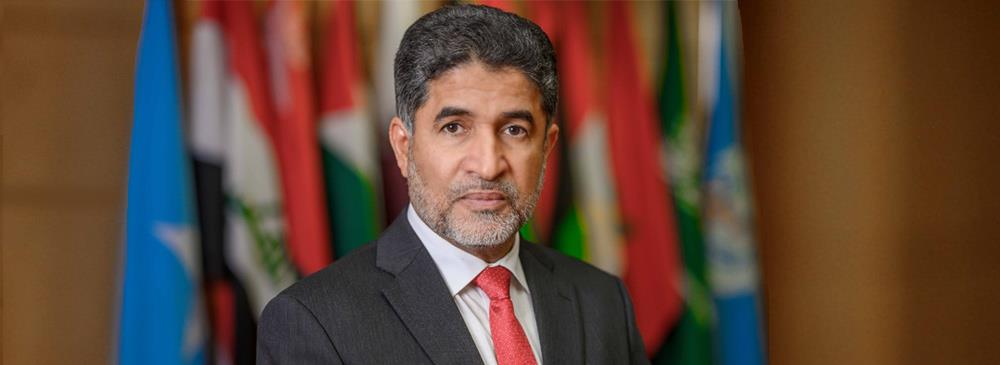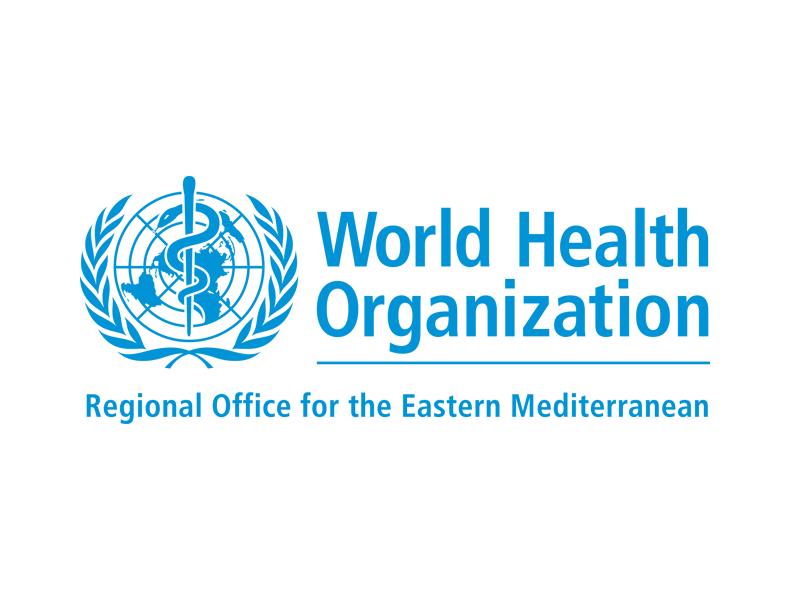
13 January 2022 – Welcome to our first press briefing of 2022, and I wish you and your loved ones a happy and healthy new year.
2021 was difficult for most of us. Despite the incredible progress made in developing effective tools to prevent and control the pandemic, including vaccines and therapeutics, we continued to see increasing numbers of people infected, too many of whom died of the disease.
As of 8 January 2022, the Eastern Mediterranean Region has reported almost 17.5 million confirmed COVID-19 cases and more than 317 000 deaths. During the first week of 2022, a total of 206 980 newly confirmed COVID-19 cases and 1053 deaths were reported. Compared to the previous week, this marks a dramatic 89% increase in cases, although there has been a 13% decrease in deaths.
It is almost certain that the highly infectious Omicron variant has caused this shocking increase in cases. Fifteen out of 22 countries in the Region have now officially reported Omicron, and as more and more people become infected, we need to prepare for the worst-case scenario. While Omicron appears to cause less severe disease compared to Delta, especially in those vaccinated, this certainly does not mean it should be underestimated, as it continues to lead to hospitalization and deaths. More countries in the Region are expected to report Omicron and we need to take it very seriously.
As we enter the third year of the pandemic, we find ourselves still in the position of a full-fledged battle against the virus, despite new tools such as vaccines and treatments. But vaccine inequity, vaccine hesitancy, and low levels of adherence to public health and social measures have given the virus an opportunity to forge ahead again. To overcome it, we must continue to scale up those actions that we know work, regardless of the variant.
A key priority remains to support and equip our frontline health workers, who are exhausted after 2 years, but whose role remains critical. They deserve our full assistance and respect. We have not yet seen health facilities overwhelmed in our Region as we have in other Regions, but we must work hard to improve hospital readiness and capacity to cope with increasing numbers of cases.
As more people become infected, we recommend that countries increase the availability of free and convenient rapid diagnostic testing options, which offer high levels of accuracy, with the added benefit of being less expensive and less time consuming than PCR tests, such as antigen tests.
To stop further spread of the virus and avoid emergence of new variants, we still need to build population immunity through high levels of vaccination. Unfortunately, however, vaccine inequity and health inequity overall were the biggest failures of last year. In part because of low vaccination rates, we have contributed to conditions for the emergence of future variants.
Six countries in our Region have still only vaccinated less than 10% of their populations: Afghanistan, Djibouti, Somalia, Sudan, Syria and Yemen. These countries have enough vaccines available to protect up to 40% of their populations, so the problem now is not so much with supply, as it is with several other challenges. These include lack of political commitment at the highest levels, insecurity, weak health systems, logistical challenges, and limited engagement with communities to enable them to access or take the vaccine.
Despite the emergence of new variants, vaccines are still an effective and vital tool in preventing severe illness and death, including from Omicron. We have seen some countries begin to roll out booster doses, and our position is clear: we are not against boosters. We are against inequity and we are for protecting the vulnerable. Those at higher risk of severe disease must be fully vaccinated before giving boosters to those at lower risk. Booster doses should certainly be considered for those at high risk and doing so can save more lives than giving primary doses to those at low risk.
As schools reopen this month, mitigation measures must be implemented, including vaccinating all eligible staff and high-risk children, and enforcing strict public health and social measures in school settings. We know that children and adolescents tend to have milder disease compared to adults, so unless they are in a group at higher risk of severe COVID-19, it is less urgent to vaccinate them than older people, those with chronic conditions and health workers.
The acute phase of the pandemic that has been associated with the tragedy of deaths and hospitalizations can end in 2022.
Over the coming months, we will be working on a strategy on living with COVID-19 in our Region. The virus will not be eliminated, but we can control it enough to live with it as we do with seasonal influenza and other common viruses, which cause occasional outbreaks in under-vaccinated populations.
But right now, we are very much still in the middle of the pandemic. Our priority is to save lives using all the available tools that we know work. We know that people are tired, but we need to gear up and get ahead of this virus, instead of allowing it to stay one step ahead of us.
For the public, there are 2 key tools that cannot be compromised: to get vaccinated when it is your turn and to follow the public health and social measures that can keep you and your loved ones safe. Let me repeat what these are: wearing a well-fitted mask; maintaining social distancing and avoiding crowded settings; covering your nose and mouth when coughing or sneezing; ensuring good ventilation; and washing hands regularly. I know that you have heard these messages time and time again but these actions are especially critical over the coming months as Omicron continues to spread and the colder temperatures force people to stay in closed indoor spaces, where the virus has a greater chance to circulate.
We will not be in this situation forever. But for now, during this critical phase, we need each individual to play a positive role in getting us towards the end of this pandemic. Let us build on the solidarity we saw at the beginning of the pandemic, so that we can make sure that all people, everywhere, are protected, under our regional vision of “Health for all, by all.”











